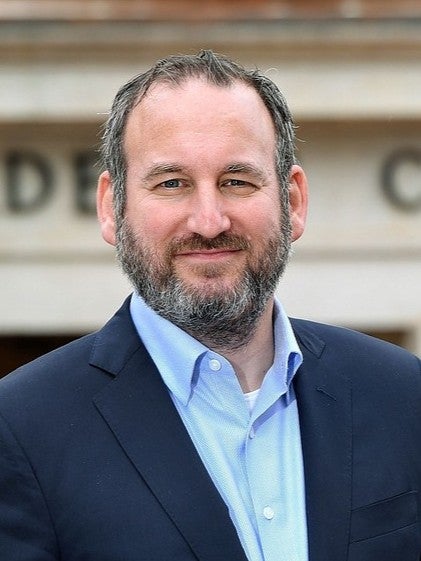
Regulatory Impact Award
Bulking Up
Lieberman, Bulk Broadband Alliance
Go to Bat for Bulk Billing
By Noah Ziegler
When the FCC unexpectedly signaled plans to regulate and restrict bulk billing arrangements in March 2024, it sent a ripple throughout the broadband industry—one that Ross Lieberman and many others quickly recognized as a threat not just to business models, but to affordable access for millions of customers.
The proposal sought to eliminate bulk billing arrangements that are used with multi-dwelling units, or require a tenant opt-out option in an effort to give consumers more choices for their communications provider. However, the industry pushback stemmed from the notion that bulk billing enables residents to see bills that could be as much as 50% lower than retail rates, among other factors that play a part in closing the digital divide.
“The model incentivizes building out, and most importantly, it’s a powerful tool for closing the digital divide by eliminating upfront fees and credit checks,” says Lieberman. “It overcomes key barriers to adoption, which is one of the reasons why government and nonprofit agencies use it to connect low-income households.”
At Hotwire Communications, where Lieberman serves as SVP, Government Affairs, that early warning sparked a campaign to reshape the conversation in Washington. He put his multiple decades of experience navigating Capitol Hill and federal agencies to work, and within weeks, the Bulk Broadband Alliance was born, creating a coalition of broadband providers, housing associations, bipartisan lawmakers, consumer advocates and more who were united around a shared goal: to defend the consumer benefits of bulk billing.
While Lieberman played an integral role in the BBA, he’s quick to credit its accomplishments as “a group effort” with many stakeholders involved, including Hotwire’s own Founder/CEO Kristin Johnson and Chief Strategy Officer Jonathan Bullock. In the early stages, though, folks had varying priorities and thoughts on how the BBA should approach advocacy efforts. Additionally, some of the smaller bulk billing providers hadn’t “done Washington” before, while others were familiar with the ins and outs of the processes.
Lieberman observed the initial landscape before reaching out to partners to offer support, using his experience with similar policy battles he’s endured in the past. “Within a relatively short period of time, most came to see the issue in a similar light, and did begin to approach it in a more coordinated and consistent manner,” Lieberman says.
Amid the beginning of outreach campaigns and budding support from external players, the BBA and Hotwire scored an early win. Johnson met with then-FCC Chairwoman Jessica Rosenworcel—the first stakeholder to do so regarding the issue—two months after the FCC’s proposal was revealed.
“Our message was straightforward. It was honed because we had many discussions up to that point with lawmakers and with others interested in this matter… and our message was rooted in the FCC’s own precedent. The bulk model supports affordability, digital equity, infrastructure investment, and we emphasize that it aligns with the Commission’s goals,” Lieberman says.
The train didn’t stop at Hotwire’s meeting with the FCC. Over the course of the next year, the BBA expanded its reach and engagement with lawmakers and community leaders, adding to the choir that sang in support of bulk billing. The bulk billing ensemble eventually achieved its goal in January when current FCC Chairman Brendan Carr officially withdrew the proposal to ban bulk billing.
“It was consistent with a clear legal reality,” Lieberman says. “Because on Jan. 2 of this year, the Sixth Circuit ruled that the FCC had exceeded its statutory authority in attempting to reclassify broadband internet access services as a Title II service, which effectively removed the agency’s authority to regulate the delivery of broadband services through bulk billing arrangements. The FCC ultimately had no choice.”
Fast Fax
- Bulk billing arrangements have been used for more than five decades, but grew to include internet services in the early 2000s.
- An estimated 5.6 million U.S. households currently have access to bulk billing options.
- Carr’s decision was the third time in 15 years that the FCC decided not to move forward on regulating bulk billing (2010 and 2017).